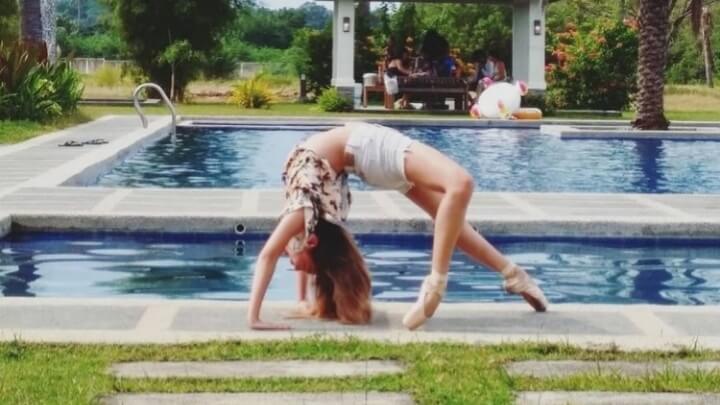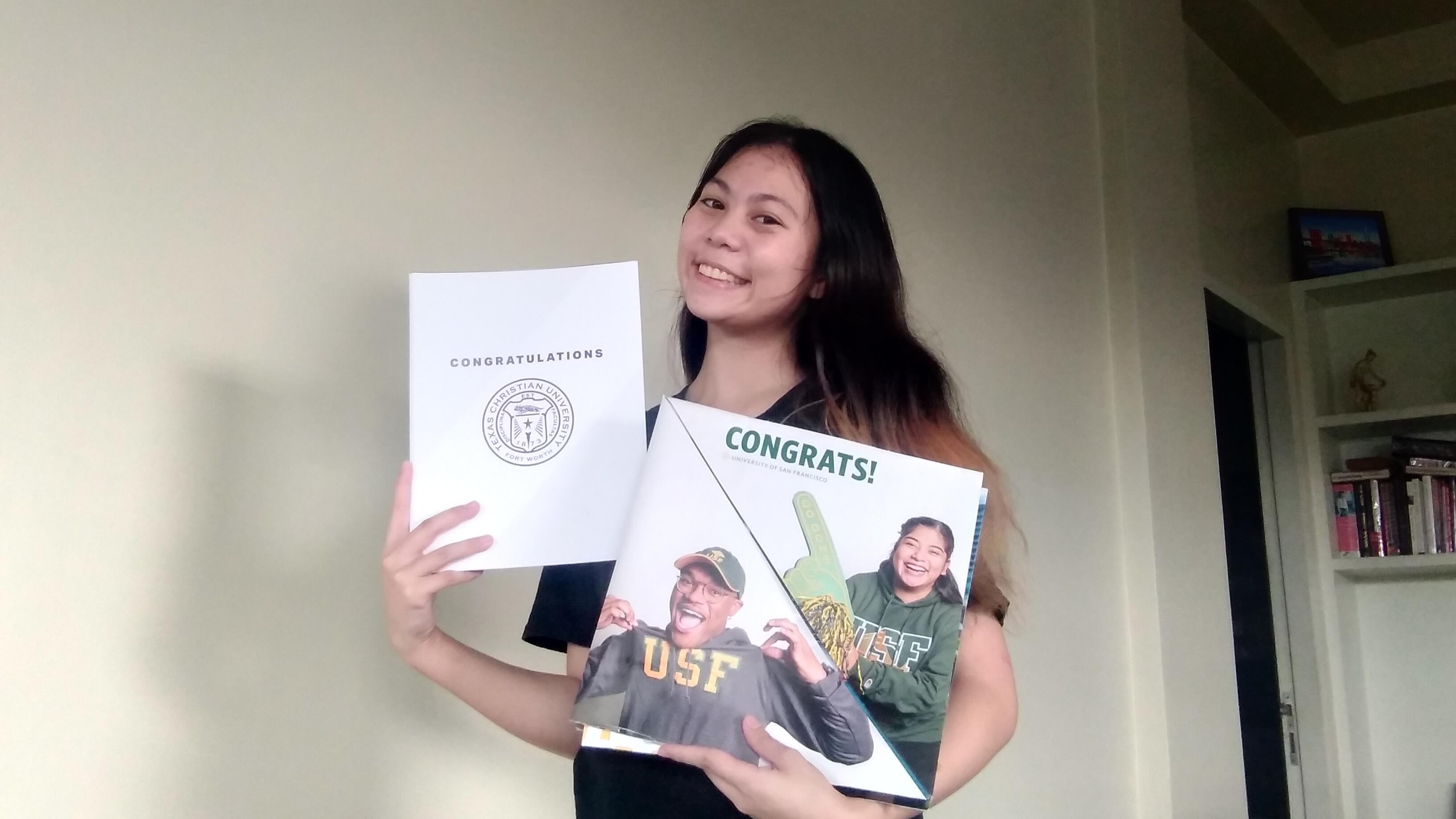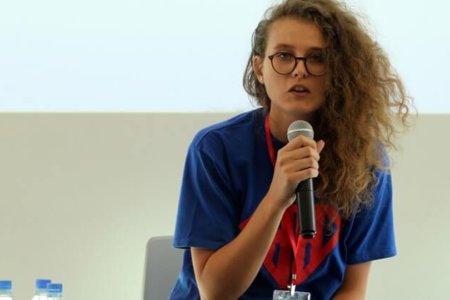
The Phillippines is home to a wealth of talent — evident from K-drama actors like Noreen Joyce Guerra to outstanding scientists such as Dr. Lawrence A. Limjuco.
Therese Riego is another go-getter to hail from the country. The ballerina from Taguig was homeschooled, but has kept herself busy by taking honours and AP courses, doing volunteer work, and dancing in shows and competitions.
View this post on Instagram
Her efforts have paid off. Today, she finds herself in the envious position of holding three merit scholarships to study abroad in the US. For this, she credits her experience of being homeschooled, which allowed her to take courses that interest her.
We talk to her about her interest in ballet, what’s it like being homeschooled, and what’s it like to have three scholarships under her belt:
How did you start as a ballet dancer? Is there a personal story behind this?
My mother had me attend ballet classes when I was around three to see if I would like it, but I actually didn’t. However, I did enjoy watching ballet with her and when I was five or six, we went to “The Nutcracker”.
When I saw the lead ballet dancer up on stage, it inspired me to take it up again. I asked my mother if I could resume my lessons and the rest is history.
Share your favourite performances with us and walk us through your experience in teaching underprivileged children.
One of my favourite performances was “Sarong Banggi” which I performed with Ballet Philippines when I was 11. It was focused on the Filipino family dynamics and the artistic director took classical folk songs from all over the country.
It was my first time dancing with a company, and to be cast as a support ballet dancer was something I loved. I also enjoyed my first Nutcracker show with the Philippine Ballet Theatre because my co-dancers and superiors were like family.

“Contrary to popular belief, homeschooling opens up a world of opportunities. For instance, I wanted to try my hand at poetry so I entered a small poetry contest,” she says. Source: Therese Riego
Before the pandemic, I used to teach ballet to young girls at RightStart which is an organisation that nurtures underprivileged children. At first, I was a little nervous and hesitant because I had no idea how to teach.
But then I soon grew to like it and loved the girls I taught. I learned how to be creative, bring out all sorts of props and make them imagine they were fairies or princesses. It was something outside of my comfort zone, especially when they would argue with each other or didn’t want to do the exercises.
Despite this, it was a fulfilling experience. I enjoyed having the girls always hug my legs when they saw me because it really warmed my heart.
Walk us through being homeschooled. Did you feel like you missed out on anything?
I don’t think I missed out on anything except maybe more Advanced Placement (AP) classes. I took AP Biology when I transferred to a regular school for senior high but aside from that, I got everything I needed by being homeschooled.
I was able to learn at my own pace and study things I was actually interested in. I have plans to go into medicine so I took up honours math and science subjects. I didn’t have to worry about socialising because I had ballet classes on most days.

“The easiest parts were answering the application questions (except for the essay prompts) and submitting the requirements. The hardest part is really building up my record,” she tells Study International. Source: Therese Riego
There, not only did I interact with peers, but I also bonded with my superiors. I was part of a homeschoolers group and a bible group, so I made more friends there too.
Contrary to popular belief, homeschooling opens up a world of opportunities. For instance, I wanted to try my hand at poetry so I entered a small poetry contest. I joined a Model United Nations event and I realised I liked it and joined a few more.
I explored different ballet competitions and even attended the American Ballet Theatre’s Summer Intensive Programme in New York. If anything, I broadened my horizons while I was homeschooled.
Tell us more about the international scholarships you won. What was the application process like?
There weren’t any separate scholarship application processes, I just applied to the unis and they decided if I would be eligible for the merit programme. Since everything was online, I just used the Common Application and submitted my requirements there.
Then, I waited until I got the emails. That’s how I found out about the scholarships.
Do you have plans to travel abroad once COVID-19 restrictions ease?
I would love to but that depends on my parents. We have talked about it but things are still up in the air.
What was the hardest and easiest part of your application process and how did you overcome the challenges?
The easiest parts were answering the application questions (except for the essay prompts) and submitting the requirements. The hardest part is really building up my record.
It was years of dedication especially for both my science studies and being a ballet dancer. I spent time taking honours and AP courses, doing volunteer work, and dancing in shows and competitions.
In terms of the actual progress, it was the essay and trying to figure out what angle I should take was a bit of a challenge. What’s something exclusive to me that I can talk about but also shows that I’m a good fit for the school?

“It was years of dedication especially for both my science studies and being a ballet dancer. I spent time taking honours and AP courses, doing volunteer work, and dancing in shows and competitions,” she says. Source: Therese Riego
It’s also about finding balance and how I can express who I am without sharing too much or describe my achievements without sounding too arrogant. What are the risks I should take and should I think about holding back?
I asked myself these questions a lot and I also did a lot of research on the schools to know what they were looking for. I then wrote my essays accordingly.
What’s your advice for other students getting homeschooled on how to manage their time wisely?
I believe that motivation is a key factor in time management. No matter how efficient my strategies are if I’m not motivated, it all goes out the window.
Start first by learning how to self-motivate as well as self-study. Once you master these skills, it’s much easier to manage your own time.
Remember to make schedules and to-do lists. I have an itinerary planned out every day including weekends.
What made you apply to study pharmaceutical sciences?
I actually only applied for pharmaceutical sciences at the University of the Philippines. Usually, I would have gone for psychology but I heard it’s harder to get to their med school with that subject.
I chose pharmaceutical sciences, specifically because I want to be a psychiatrist and I figured that would help with learning about medications. For the unis in the US, I chose psychology (except with Texas Christian University where I chose neuroscience) as my study subject.
Lastly, what advice do you have for future scholarship applicants based on your experiences?
I would suggest focusing on three things in your application: show your well-roundedness, your passions, and focus on the application essay. For the first two, let your activities outside school speak for you.
Try out different interests, but also make sure to stick to a few you want to invest proper time in. If you don’t have this to show on record, there’s always the application essay that you should use as a chance to present another aspect of yourself.










